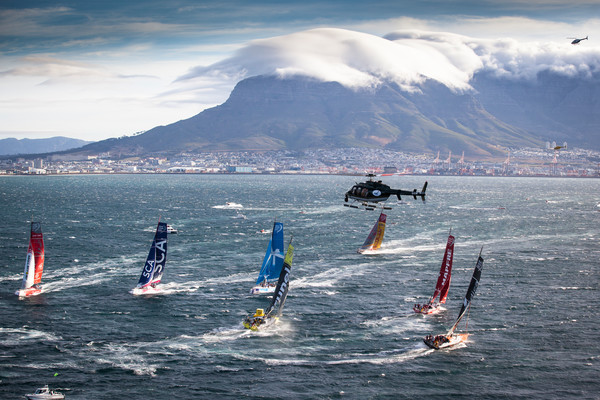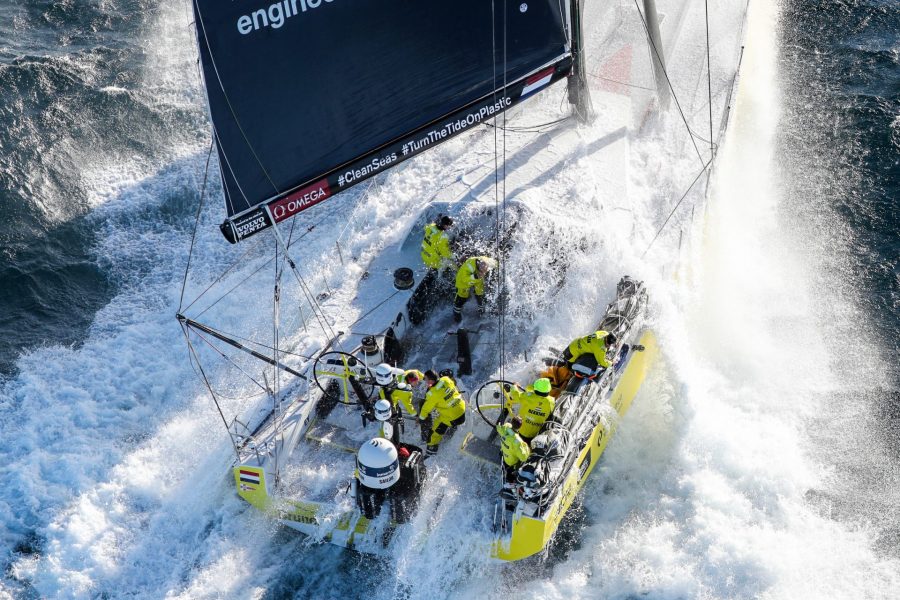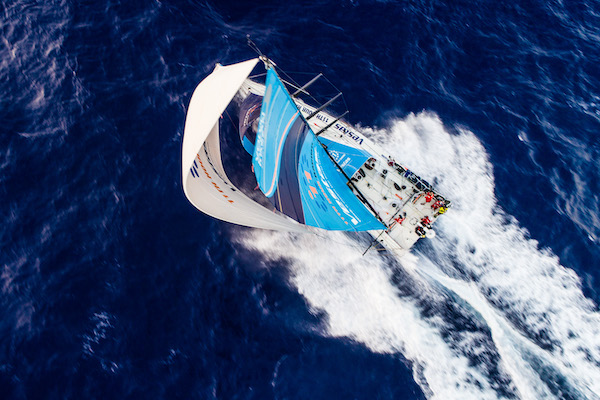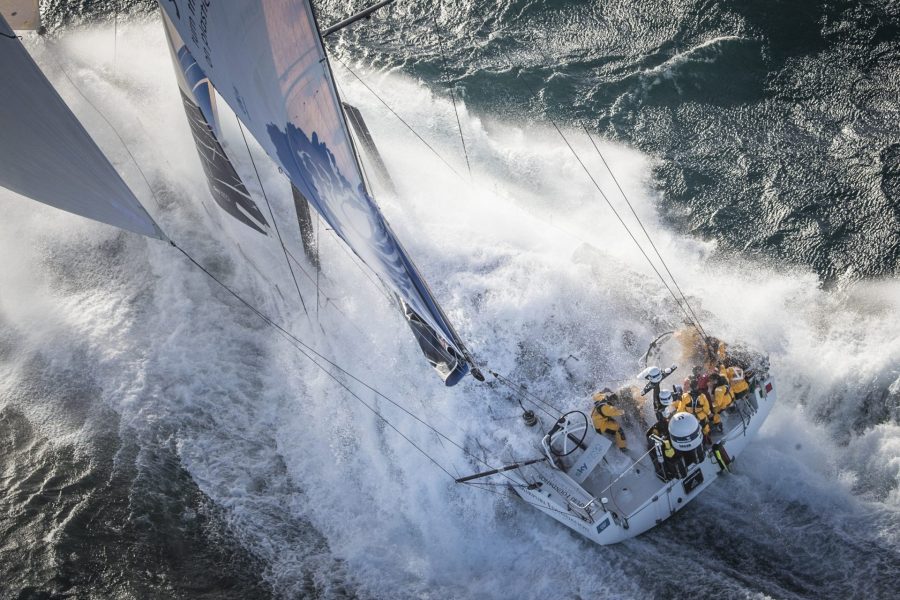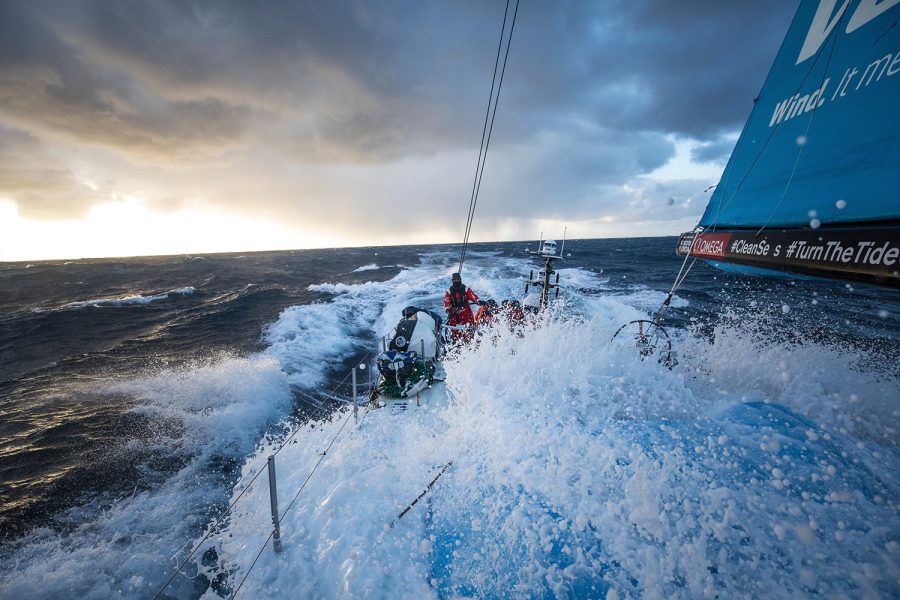The route for the 14th edition of The Ocean Race now includes an epic crossing of the Southern Ocean. It will be the longest leg ever in the 50 year history of the race.
The highlights
The next edition of The Ocean Race will feature an incredible 12,750 nautical mile marathon between Cape Town, South Africa and Itajaí, Brazil. How will the teams and the boats fare? This leg will add a whole new level of ‘life at the extreme’!
It will be the longest leg in the history of The Ocean Race. Dating all the way back to the very first fully-crewed around the world race in 1973, it will see a transit of the three great Capes – the Cape of Good Hope, Cape Leeuwin and Cape Horn – in succession, without a stopover, for the very first time.
“We believe the 12,750 nautical mile leg from Cape Town to Itajaí is a very special element – unique in history,” explained Johan Salén, the Managing Director of The Ocean Race. “The ongoing and unpredictable effects of COVID have meant it is impossible, at this time, to do the planning necessary to ensure successful stops in China and New Zealand.”
- Start of Leg 2. Day 1 from Lisbon to Cape Town. Photo by Ainhoa Sanchez/Volvo Ocean Race. 05 November, 2017.
- Leg 4, Melbourne to Hong Kong, day 14, Vestas 11th Hour sailing at pace downwind through the Tradewinds. Photo by Amory Ross/Volvo Ocean Race. 15 January, 2018.
- Start of Leg 2. Day 1 from Lisbon to Cape Town. Turn the Tide on Plastic Photo by Ainhoa Sanchez/Volvo Ocean Race. 05 November, 2017
- Leg 3, Cape Town to Melbourne, day 13, Southern Ocean sailing on board Vestas 11th Hour. Photo by Sam Greenfield/Volvo Ocean Race. 22 December, 2017.
The route
The IMOCA and VO65 fleets will sprint out of the Mediterranean Sea to Cabo Verde, visiting this African island nation for the very first time, before racing down to a perennial favourite among stopovers, in Cape Town, South Africa.
Then, a return to the roots of the Race, with a massive sojourn through the Southern Ocean, over 30 days of racing, to Itajaí, Brazil, host of the past three stopovers in South America.
The race route is rationalised in response to the logistical realities of an around the world race in a COVID-19 environment. The race will start from Alicante, Spain in late December 2022 / early January 2023, with the final date to be announced.
Following the Southern Ocean leg, and after rounding the famed Cape Horn, teams will stop in Itajaí, Brazil to recharge both their bodies and their boats. The race course will continue to Newport, Rhode Island, USA, before crossing the Atlantic to northern European stops in Aarhus, Denmark and The Hague in The Netherlands, before the Grand Finale finish in the Mediterranean city of Genova, Italy.
A race with the future in mind
“China and New Zealand remain important now and to the future of The Ocean Race, we plan to return to both countries again,” said Race Chairman Richard Brisius. “We will work diligently with both countries to explore ways for them to have a meaningful presence in this edition as well.
“China, of course, has a strong history of hosting stopovers since 2008-09, and was the winner of the last edition of the Race, with Dongfeng Race Team. We consider Auckland to be a spiritual home for this event, with legends like Sir Peter Blake, Grant Dalton, Ross Field and Mike Sanderson, to name just a few among so many of the amazing Kiwis who have taken on this challenge. Their legacy is woven into the fabric of The Ocean Race,” continued Richard.
What the sailors say
Charlie Enright, skipper – 11th Hour Racing Team
“This update to the race route makes it reminiscent of the original Ocean Race’s of the past. I hope the delay of the start until after the Route du Rhum will entice more teams to join us on the start line,” said Charlie. “Not only is it a simpler race from a logistics and organisational point of view. It should also be more cost-effective and more accessible for other IMOCA teams, particularly those looking to build-up to the 2024 Vendée Globe. The confirmed course is exciting. One month at sea, racing through the Southern Ocean, on the longest leg we’ve ever faced. It’s a reminder that we will need to be at the top of our game to take it on. It allows us to really hone in on our preparations, starting with the Transat Jacques Vabre.”
Paul Meilhat, winner Route de Rhum 2018
“When I look at The Ocean Race, I see a great opportunity,” said Paul.“This is a race that will push us to the limits as sailors but it is also set up well for us as IMOCA sailors to race in a fully-crewed format, and showcase the fastest, foiling, offshore race boats to fans of the sport all around the world.”
Boris Herrman, Team Malizia
“This is positive news,” said Boris Herrmann, who has announced an ambitious five-year programme of racing, with a focus on ocean science and education. “The Ocean Race is a fantastic platform for what we are trying to achieve, both on and off the water, and the updated route and schedule puts the race as our primary focus for 2023.”
Chris Nicholson, W-Ocean Racing and 6 time race veteran
“The updated race course sets out an epic Southern Ocean leg, even longer than when we raced from China to Rio back in the 2008-09 race,” said Chris. “This race now combines the ideal race for the sailors whilst still delivering for the stakeholders. I am already looking forward to it whilst also being very wary of the leg at the same time. One of the best parts of competing in The Ocean Race is being able to push yourself and your boat to the limit. Now we have been given a taller mountain to climb and I cannot wait for the challenge.”
Challenging times ahead
Stopover dates will be announced shortly as the route logistics are fully confirmed. “These are challenging, but nonetheless very exciting times for international events like The Ocean Race,” reflected Brisius. “We have a clear mission ahead – to enable our sailors to achieve the extraordinary, while driving change towards a healthier, sustainable planet.
After The Ocean Race Europe this spring, the 14th edition of the around the world race is the next phase in our 10-year plan of events, which includes regional and global races. Our series of The Ocean Race Summits, designed to explore solutions and drive meaningful change towards the restoration of ocean health. We will continue working with all of our stakeholders: teams, host cities, partners, race fans and media to make progress on these goals.”
Entries for the race will be announced by participating teams over the coming months – the list of registered teams can be found here.
“This race course, for sailors and teams in both the IMOCA and VO65 classes, is shaping up to provide one of the toughest challenges in the long story of the Race,” Salén concluded. “Over our 50 years of history, The Ocean Race has evolved with the times, but remained true to its core values. We’re looking forward to the next start in Alicante in December/January to write the next chapter.”

